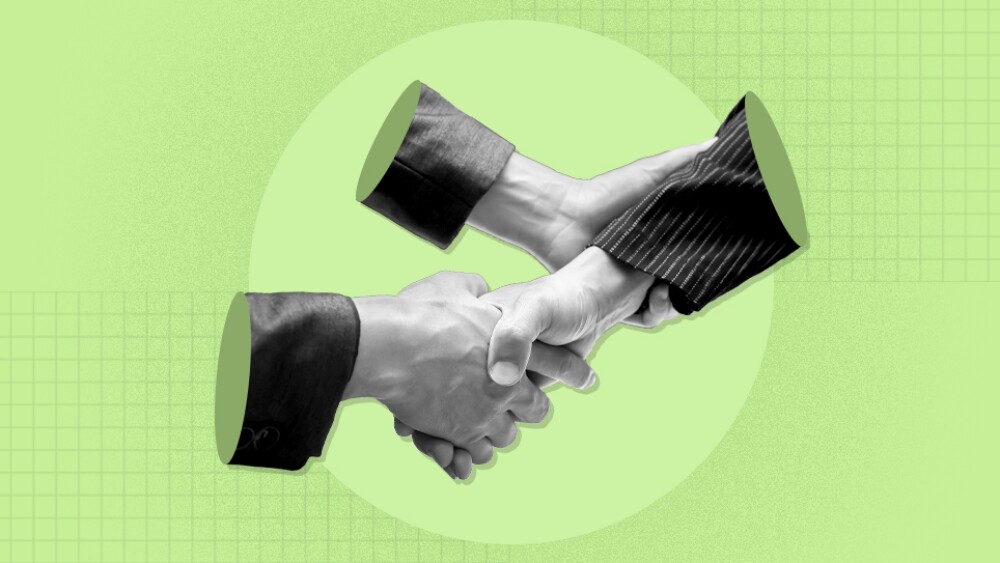An FDA advisory committee voted Wednesday that Ipsen’s fibrodysplasia ossificans progressive candidate palovarotene was effective and the benefits of the drug outweighed its risks.
Pictured: Healthcare worker looking at an x-ray image of a hand/iStock
The efficacy and risk-benefit profile of Ipsen Biopharmaceuticals’ drug palovarotene, intended for the treatment of the rare condition fibrodysplasia ossificans progressiva, received positive support from the FDA’s Endocrinologic and Metabolic Drugs Advisory Committee vote Wednesday.
Although the FDA staff expressed reservations regarding the drug’s safety and effectiveness, the external panel of advisors voted 10-4, based on evidence from a Phase III study, that the drug demonstrated efficacy. Additionally, they voted 11-3 that the benefits of the drug outweighed the associated risks.
Lisa Munger is a senior editor at BioSpace. You can reach her at lisa.munger@biospace.com. Follow her on LinkedIn.
Original story, June 27
Despite a risk of bias and false positives, the FDA appears to be open to considering Ipsen’s post-hoc analysis of a Phase III study to support the approval of its investigational therapy palovarotene, proposed for the ultra-rare disease fibrodysplasia ossificans progressive.
Ipsen is seeking approval for a once-a-day, 5-mg dose of palovarotene, along with a flare-up regimen consisting of a 20-mg once-daily schedule for the first four weeks followed by 10-mg once-daily for eight weeks, according to the company’s briefing document posted ahead of an Endocrinologic Drugs Advisory Committee meeting scheduled Wednesday.
To support its regulatory bid, Ipsen provided data from one Phase II study with multiple open-label extension phases and a single-arm, open-label Phase III study, which used an external natural history control.
However, according to the FDA’s briefing material, palovarotene failed its Phase III study, which “crossed the prespecified futility boundary at the second interim analysis.”
Ipsen maintains that this was due to the use of a particular statistical technique and the inherent biases that come with using natural history controls. The company then conducted several post-hoc analyses, employing different statistical operations and accounting for differences between the external controls and the Phase III population.
These post-hoc analyses established that palovarotene was effective and could strongly reduce heterotopic ossification, a key symptom of fibrodysplasia ossificans progressive.
With these considerations in mind, the regulator’s reviewers wrote that while post-hoc analyses are typically only used to generate hypotheses, “in this specific context, FDA acknowledges that the prespecified primary analysis may not have been the appropriate method for analyzing the primary endpoint.”
“We think it is reasonable to consider alternative, more appropriate analyses to assess evidence of efficacy,” the agency’s staff wrote.
Despite the FDA’s flexibility on Ipsen’s post-hoc analyses, the regulator still flagged a slightly higher rate of flare-up episodes among patients taking palovarotene and pointed to uncertainties regarding the long-term development of heterotopic ossification associated with the treatment.
The panel of external experts will decide on two matters during Wednesday’s meeting: whether Ipsen’s Phase III data provide enough evidence of palovarotene’s efficacy and whether the candidate’s benefits outweigh its risks.
This is palovarotene’s third time before the regulator. The first was in May 2021, but Ipsen withdrew its application a few months later. In August of the same year, after the FDA expressed in a meeting that it would need more data. The company resubmitted its application, which the agency accepted in June 2022. The FDA issued a Complete Response Letter in December 2022 related to a prior request for more data.
Tristan Manalac is an independent science writer based in metro Manila, Philippines. He can be reached at tristan@tristanmanalac.com or tristan.manalac@biospace.com.





